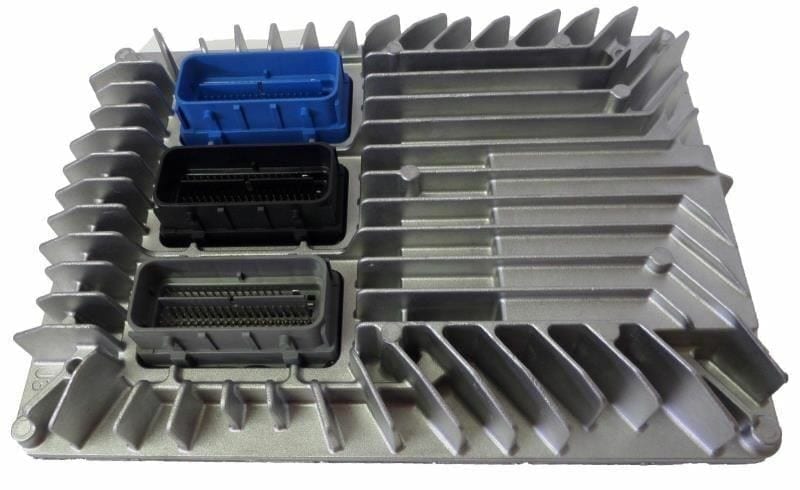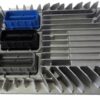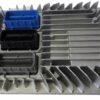Is Your Chevrolet Orlando Running Rough?
If your 2012 or 2013 Chevrolet Orlando is suffering from a persistent check engine light, erratic performance, stalling, or a complete no-start condition, a failing Engine Control Module (ECM) is a likely culprit. The ECM is the brain of your vehicle’s engine, controlling everything from fuel injection and ignition timing to emissions systems. When it fails, it can cause a cascade of frustrating and difficult-to-diagnose issues. This replacement Engine Control Module, part number 12637106, is the definitive solution to restore your vehicle’s performance and reliability.
The Easiest Way to Replace Your Engine Computer
Forget about expensive dealership visits and the hassle of finding a shop to program a new module. We take care of the most critical step for you. Before this ECM ships, we will program it specifically to your vehicle using the VIN you provide. This means it arrives at your door with the latest GM factory software updates, ready for installation. This service ensures perfect compatibility and can even resolve underlying software bugs that your old module may have had.
Expert Pro Tip
Before condemning your ECM, always perform a thorough check of its power and ground circuits. A corroded ground wire or a loose connection at the fuse box can often mimic the symptoms of a failed module. Use a multimeter to verify you have a solid 12V supply and less than 0.1 ohms of resistance on the main ground wires connected to the ECM. This simple check can save you from replacing a perfectly good part.
Common Symptoms of a Failing 2012-2013 Orlando ECM
- ✔ Persistent Check Engine Light (CEL) that won’t clear.
- ✔ Engine stalling, stumbling, or hesitating during acceleration.
- ✔ Unexplained drop in fuel economy.
- ✔ Intermittent or complete no-start conditions.
- ✔ Harsh or incorrect automatic transmission shifting.
- ✔ Communication errors when using a diagnostic scan tool.
- ✔ Trouble codes related to processor failure, sensor reference voltage, or communication loss.
Guaranteed Fitment and Wide Compatibility
This ECM is a direct-fit replacement for your 2012-2013 Orlando ECM and is also a confirmed fit for a wide range of other General Motors vehicles. It replaces multiple part numbers including 12616889, 12630908, 12637106, 12642665, 12650256, and 12651993. Please verify your part number or consult the compatibility list below. This module is commonly found in models such as:
- Buick Allure & LaCrosse (2010-2011)
- Cadillac CTS & SRX (2010-2012)
- Chevrolet Camaro, Captiva Sport, Equinox, Impala (2010-2012)
- GMC Terrain (2010-2011)
- Saab 9-5 (2010-2011)
By purchasing this module, you are getting a reliable, tested component that is professionally programmed to ensure your vehicle runs exactly as it should. Simply provide your VIN after purchase, and we’ll handle the rest, shipping you a part that’s ready to get you back on the road.
Frequently Asked Questions
Do I need to get this ECM programmed by a dealer?
No. The main benefit of our service is that we program the module to your vehicle’s specific VIN before we ship it to you. It will arrive ready for installation, saving you time and the high cost of dealership programming.
Where is the ECM located on my 2012-2013 Chevrolet Orlando?
On the 2012-2013 Orlando, the Engine Control Module is typically located in the left-hand (driver’s side) of the engine compartment. Always disconnect the vehicle’s battery before attempting to remove or install the module.
What is a VIN and why do you need it?
The VIN (Vehicle Identification Number) is a unique 17-digit code for your specific car. We require it to load the correct factory software, calibrations, and security information onto the ECM, ensuring it communicates perfectly with all other systems in your vehicle.
Will this part fix my check engine light?
If the check engine light and associated symptoms are caused by a faulty ECM, this replacement part will resolve the issue. However, if the light is on due to another failing component (like a sensor or wiring), that issue will also need to be addressed.
Is any other procedure required after I install it?
In some cases, a security relearn procedure (also known as a key relearn or anti-theft relearn) may be required after installation. This is a simple procedure that can typically be done without special tools and instructions can be readily found online for your specific vehicle.


